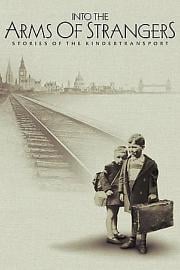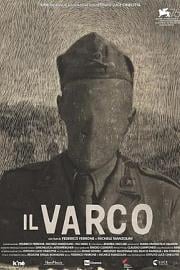
Into the Arms of Strangers: Stories of the Kindertransport (2000)
In 1933, when Laurie Kahn, Kurt Faucher and Eva Hyman were children with little memory, few of the Jews living in Germany, Czechoslovakia and Austria could foresee the great changes in their lives. Adults like this, children who ask for crayons with their parents, play football on the lawn and go shopping with their grandparents do not expect that their happy childhood is coming to an end. In March 1938, with the German Nazis occupying Austria without firing a shot and merging Austria into the territory of Germany, the children's childhood drew a black full stop. At first, Laurie Kahn, Kurt Furchell and Eva Hyman did not realize how much war would change their lives, but when they woke up one morning and saw the street full of soldiers with Nazi badges on their armbands through the window, it was too late to think of the fleeing Jews. Half a year later, on November 18, the German Nazis had arrested nearly 20,000 Jewish children. At that time, Britain was the only country in the international community that was more lenient to immigrants, although the US Congress passed a bill agreeing that there were conditions.
In 1933, when Laurie Kahn, Kurt Faucher and Eva Hyman were children with little memory, few of the Jews living in Germany, Czechoslovakia and Austria could foresee the great changes in their lives. Adults like this, children who ask for crayons with their parents, play football on the lawn and go shopping with their grandparents do not expect that their happy childhood is coming to an end. In March 1938, with the German Nazis occupying Austria without firing a shot and merging Austria into the territory of Germany, the children's childhood drew a black full stop. At first, Laurie Kahn, Kurt Furchell and Eva Hyman did not realize how much war would change their lives, but when they woke up one morning and saw the street full of soldiers with Nazi badges on their armbands through the window, it was too late to think of the fleeing Jews. Half a year later, on November 18, the German Nazis had arrested nearly 20,000 Jewish children. At that time, Britain was the only country in the international community that was more lenient to immigrants, although the US Congress passed a bill agreeing that there were conditions.
Top Cast
-
Judi Dench Actor
1080P
| Title | Download | Size | Publish |
|---|---|---|---|
| Into.the.Arms.of.Strangers.Stories.of.the.Kindertransport.2000.1080p.WEBRip.x265-RARBG | 1.8GB | 2 Year ago | |
| Into.the.Arms.of.Strangers.Stories.of.the.Kindertransport.2000.1080p.HMAX.WEBRip.DD5.1.x264-squalor | 7.1GB | 2 Year ago |
DVD
| Title | Download | Size | Publish |
|---|---|---|---|
| Into.The.Arms.of.Strangers.2000.DVDRip.x264-HANDJOB | 2.7GB | 4 Year ago |
Similar Movies
 They Shall Not Grow Old(2018)
They Shall Not Grow Old(2018) Frammento 53(2015)
Frammento 53(2015) The Giant Killer(2017)
The Giant Killer(2017) Iraq in Fragments(2006)
Iraq in Fragments(2006) The Nazis Strike(1943)
The Nazis Strike(1943) Above the Best(2019)
Above the Best(2019)
 Miners Shot Down(2014)
Miners Shot Down(2014)

